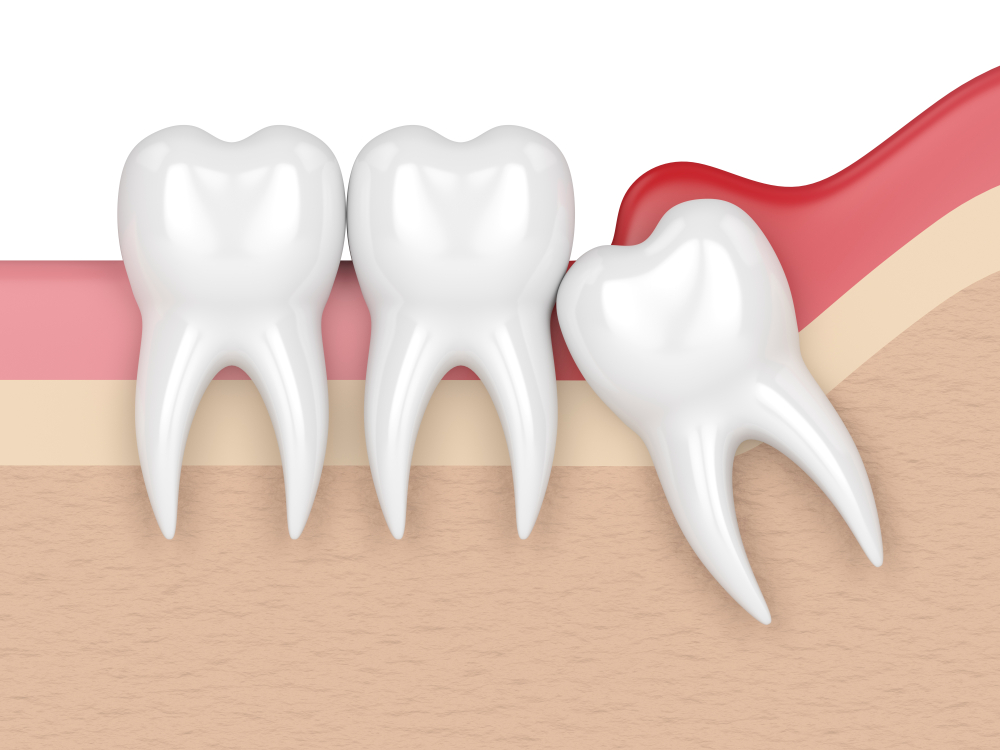Pericoronitis Causes, Symptoms, and Treatment Options
Pericoronitis is a dental condition characterized by inflammation, swelling, and infection of the gum tissue surrounding the wisdom teeth. Typically, it affects the lower wisdom teeth and is most commonly observed in individuals in their late teens or early twenties. In this article, we will explore the causes, symptoms, and treatment options for pericoronitis.
Causes of Pericoronitis
The primary cause of pericoronitis is the partial exposure of the wisdom tooth, also known as soft tissue impaction, coupled with excess gum tissue that overlaps the tooth. This overlapping gum tissue creates a space where bacteria and food debris can become trapped, leading to inflammation and infection.
Symptoms of Pericoronitis
It is important to recognize the symptoms of pericoronitis in order to seek timely treatment. The following are the top 5 symptoms associated with pericoronitis:
- Inflamed Gums: The gum tissue surrounding the wisdom tooth may appear red and swollen.
- Red Gum Tissue: The gum tissue in the affected area may have a reddish appearance.
- Swollen Gum Tissue: The gum tissue may appear swollen and puffy.
- A Gum Flap: There may be a flap of gum tissue partially covering the wisdom tooth.
- Draining Pus: In some cases, the affected area may be draining pus.
If you experience any of these symptoms, it is advisable to visit your dentist for a proper diagnosis and appropriate treatment.

Can Pericoronitis Go Away on Its Own?
Unfortunately, pericoronitis does not typically resolve on its own. If left untreated, it can become more severe and potentially dangerous within a few weeks. Prompt treatment is necessary to alleviate symptoms and prevent complications.
Treatment Options for Pericoronitis
The treatment options for pericoronitis may vary depending on the severity of the symptoms. It is important to consult with a dental professional, such as Dr. Jenny Sisombath, DDS, at Prosper & Smile Dental Care in Prosper, TX, to determine the most suitable course of action. The following are potential treatment options for pericoronitis:
Thorough Cleaning
In mild cases of pericoronitis, the first step is a thorough cleaning of the affected area. Your dentist will remove any trapped food particles and debris from under the gum flap, using specialized dental instruments.
Antibiotics
If the infection is more severe or has spread, your dentist may prescribe antibiotics to control the infection. It is crucial to complete the full course of antibiotics as prescribed, even if symptoms improve before the medication is finished.
Pain Relief
Over-the-counter pain relievers, such as ibuprofen, can help manage the discomfort and swelling associated with pericoronitis. In some cases, your dentist may prescribe stronger pain medication to provide relief.
Oral Rinses
Antiseptic mouthwashes or oral rinses may be recommended to reduce inflammation and clean the affected area. These rinses can be particularly effective in managing symptoms and preventing further infection.
Gum Flap Removal (Operculectomy)
If recurrent infections occur or if the gum flap (operculum) is causing chronic problems, a minor surgical procedure known as an operculectomy may be suggested. This procedure involves removing the gum flap, typically done in the dentist’s office.
Tooth Extraction
In cases where pericoronitis recurs frequently or when the wisdom tooth is impacted, your dentist may recommend extraction of the tooth. This definitive solution helps prevent future episodes of pericoronitis. The decision to extract a tooth considers factors such as overall dental health, tooth position, and the risk of complications.
Follow-Up Care
After treatment, follow-up appointments may be necessary to ensure that the infection has cleared and to provide further care instructions. Your dentist will guide you on proper oral hygiene techniques to prevent recurrence.
Diagnosis and Treatment at Prosper & Smile Dental Care
If you suspect you have pericoronitis or require treatment for pericoronitis, it is essential to visit Prosper & Smile Dental Care in Prosper, TX. Dr. Jenny Sisombath, DDS, and her team will provide a thorough examination, clean the affected area, and offer the most suitable treatment options based on the severity of your condition. To schedule an appointment, call our office or book online.
Remember, timely intervention and professional dental care are crucial in managing pericoronitis and maintaining your oral health. Don’t ignore the symptoms and seek treatment promptly to ensure a speedy recovery.
